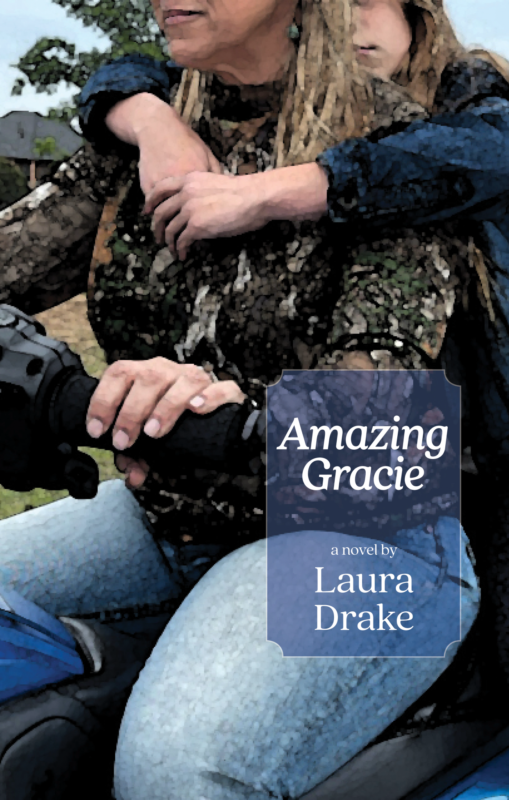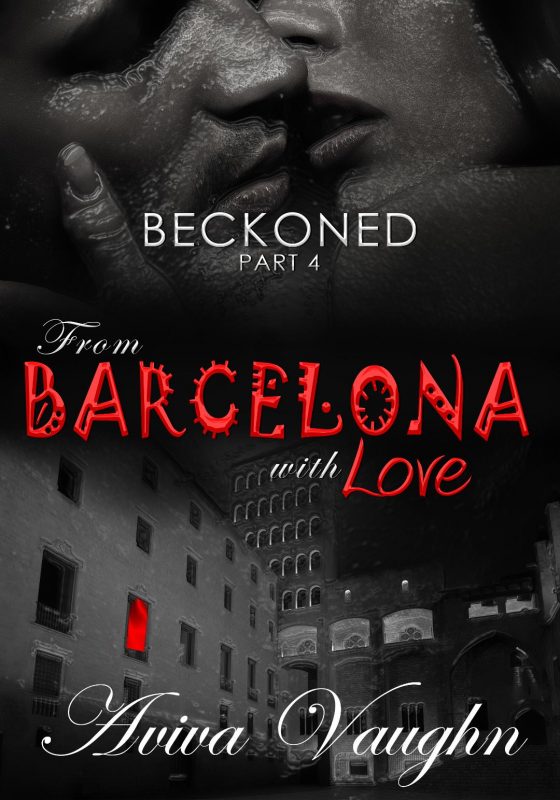My Dad’s Super Power
June 22, 2024 by Veronica Jorge in category Write From the Heart by Veronica Jorge tagged as Craft, inspiration
My father always said, “Know who you are. In whatever you do, do your best.” By his hard work and example, he instilled in me the importance of integrity and quality. This makes me scrutinize everything I say and write (sometimes to excess). But also causes me to dig a little deeper and write from the heart which makes for a satisfying journey.
When I showed interest in wearing makeup, he made me feel beautiful and confident without it. In his own special way, he taught me that natural and simple is best. So writing, I find, is like learning how to dress and color coordinate. You develop your own style. Mix and match colors to accentuate. Create different looks depending on the season and occasion. Dress to impress or just to chill out. And when you meet a special someone…dress to be “effective.” You want your writing to stand out, but not overwhelm. That would be like wearing too much makeup. Picture the character, Mimi, on the Drew Carey show, or the sea witch, Ursula, in Disney’s, The Little Mermaid.
“Be original. Be creative,” said dad. “And above all, when you speak, don’t ramble.” By which he meant that if someone asks the time, don’t explain how a clock is made. (That’s when I edit, edit, edit).
Many writers speak of having a muse, but I find that although my father is long gone from this world, the words and teachings which he wove into my being continue to guide and inspire me. This leads me to conclude that my dad had a super power: Words.
I hope I have inherited it.
See you next time on July 22nd.
Veronica Jorge
For all you’ve taught me, dad, this one’s for you.
Featured Author: Denise M. Colby
June 21, 2024 by Denise M. Colby in category Apples & Oranges by Marianne H. Donley, Featured Author of the Month tagged as Author of the Month, Christian Historical Fiction, Denise M Colby, Marketing, Social Media, writing
Denise M. Colby loves to write words that encourage, enrich, and engage whether it’s in her blog, social media, magazine articles, or devotions. With over 20+ years’ experience in marketing, she enjoys using her skills to help other authors.

She treasures the written word and the messages that can be conveyed when certain words are strung together. She, being an avid journal writer, is often seen with a pen and notepad whenever she reads God’s word. Denise is writing her first Christian Historical Romance Series, and you can find her at www.denisemcolby.com
Denise is a member of OCRW, Faith, Hope & Love Christian Writers, ACFW (where she was a semi-finalist in the Genesis contest Historical Romance Category), OC Chapter of ACFW, and Novel Academy.
You can read Denise’s column The Writing Journey on A Slice of Orange, or follow her on Facebook or Instagram. You can also sign-up for her newsletter.
Big news for Denise!
Denise’s debut novel, When Plans Go Awry, won the Grand Prize in the Scrivenings Press #GetPubbed Contest for 2023, placing 1st place in the Historical category. It is the first of four books in this series being published by Scrivenings Press.

When Plans Go Awry
Denise M. Colby
ISBN: 978-1-64917-391-1
June 4, 2024
Olivia Carmichael escapes her past to become the next schoolmarm in the small ranching community of Washton, California. Her plan? Live a quiet spinster life alone, never to depend on anyone again.
Luke Taylor selected a mail-order bride to help raise his two younger sisters and protect his broken heart. His plans don’t include being responsible for the beautiful new schoolmarm, who threatens his resolve between his need to stay away and his need to ensure her safety.
Along the way, Olivia’s carefully laid-out plans are challenged at every turn, and Luke’s mail-order bride is not what he expected.
With the help of the entire town and its wily rooster, can Luke and Olivia learn to trust again?
Denise M. Colby’s Books
Featured Author: Denise M. Colby
June 14, 2024 by Denise M. Colby in category Apples & Oranges by Marianne H. Donley, Featured Author of the Month tagged as Author of the Month, Christian Historical Fiction, Denise M Colby, Marketing, Social Media, writing
Denise M. Colby loves to write words that encourage, enrich, and engage whether it’s in her blog, social media, magazine articles, or devotions. With over 20+ years’ experience in marketing, she enjoys using her skills to help other authors.

She treasures the written word and the messages that can be conveyed when certain words are strung together. She, being an avid journal writer, is often seen with a pen and notepad whenever she reads God’s word. Denise is writing her first Christian Historical Romance Series, and you can find her at www.denisemcolby.com
Denise is a member of OCRW, Faith, Hope & Love Christian Writers, ACFW (where she was a semi-finalist in the Genesis contest Historical Romance Category), OC Chapter of ACFW, and Novel Academy.
You can read Denise’s column The Writing Journey on A Slice of Orange, or follow her on Facebook or Instagram. You can also sign-up for her newsletter.
Big news for Denise!
Denise’s debut novel, When Plans Go Awry, won the Grand Prize in the Scrivenings Press #GetPubbed Contest for 2023, placing 1st place in the Historical category. It is the first of four books in this series being published by Scrivenings Press.

When Plans Go Awry
Denise M. Colby
ISBN: 978-1-64917-391-1
June 4, 2024
Olivia Carmichael escapes her past to become the next schoolmarm in the small ranching community of Washton, California. Her plan? Live a quiet spinster life alone, never to depend on anyone again.
Luke Taylor selected a mail-order bride to help raise his two younger sisters and protect his broken heart. His plans don’t include being responsible for the beautiful new schoolmarm, who threatens his resolve between his need to stay away and his need to ensure her safety.
Along the way, Olivia’s carefully laid-out plans are challenged at every turn, and Luke’s mail-order bride is not what he expected.
With the help of the entire town and its wily rooster, can Luke and Olivia learn to trust again?
Denise M. Colby’s Books
Poetry Lesson: A metered approach to writing prose
June 13, 2024 by Bethlehem Writers Group in category From a Cabin in the Woods by Members of Bethlehem Writers Group tagged as inspiration, poetry, prose, writing
At a recent writers conference (the Write Stuff in Bethlehem, PA) keynote speaker Jonathan Maberry shared that he reads poetry for 30 minutes every day. He does it, he said, because it helps inspire his prose.
I have a fair amount of poetry on my shelves, and I do enjoy reading it, but I don’t read it every day. (I don’t write poetry; or rather, the poetry I write is best not shared with anyone.)
But Maberry has a point: Poetry can tell a story, illuminate a concept, or create a mood with a minimum of words—each word chosen by the poet because it’s exactly the right one. And that approach can inspire our writing of prose, because honing language is also what we strive for when we revise and polish our manuscripts.
I went to my poetry bookshelf and randomly pulled several volumes:
- Paul Muldoon, Horse Latitudes
- Sharon Olds, Strike Sparks
- Billy Collins, Nine Horses
- Mary Oliver, Why I Wake Early
- Natalie Diaz, Postcolonial Love Poem
- Sarah Arvio, Visits from the Seventh
For this exercise, I skipped over my book of Shakespeare sonnets and any poetry anthologies, as well as the two books of poetry I’m currently reading: Life on Mars by Tracy K. Smith and The Best of It by Kay Ryan.
I’ll share a snippet from the poets listed above and what struck me about their passages.
From Mary Oliver’s “Snow Geese” (breathtaking visual image)
One fall day I heard / above me, and above the sting of the wind, a sound / I did not know and my look shot upward; it was / a flock of snow geese winging it / faster than the ones we usually see, / and, being the color of snow, catching the sun / so they were, in part at least, golden
From Natalie Diaz’s “The First Water Is the Body” (depth of the soul)
We must go until we smell the black root-wet anchoring the river’s mud banks. We must go beyond beyond to a place where we have never been the center, where there is no center—beyond, toward what does not need us yet makes us.
From Sharon Olds’ “The Promise” (interesting juxtaposition of opposing elements)
With the second drink, at the restaurant, / holding hands on the bare table, / we are at it again, renewing our promise / to kill each other.
From Sarah Arvio’s “Malice” (superb characterization)
An ever-so-alluring deceiver / is the one who tells you your every dream / as though it were the truth of the future; / meanwhile there you stand in a wash of sweat, / your hopes lifted high only to be dashed.
From Paul Muldoon’s “The Old Country” (clever wordplay)
Every malt was a single malt. / Every pillar was a pillar of salt. / Every point was a point of no return.
From Billy Collins’ “Absence” (metaphorical excellence)
This morning as low clouds / skidded over the spires of the city / I found next to a bench / in a park an ivory chess piece— / the white knight as it turned out— / and in the pigeon-ruffling wind / I wondered where all the others were, / lined up somewhere / on their red and black squares, / many of them feeling uneasy / about the saltshaker / that was taking his place
I came away from this exercise re-energized to dip into poetry regularly—most likely not every day, but perhaps weekly, when I’m staring at my screen, wondering how to dig myself out of the writing hole I’ve created. A poetry break may help provide just the shovel or pick axe I need.
What poets do you read? How have they influenced your writing?
Dianna Sinovic
Certified Book Coach, Editor, Author
Anthology contributor: That Darkened Doorstep, An Element of Mystery
Blog contributor: A Slice of Orange
Member: Sisters in Crime, Horror Writers Association, Bethlehem Writers Group
Diasin Books LLC
www.dianna-sinovic.com
“Art is fire plus algebra.”
– Jorge Luis Borges
From The Bethlehem Writers Group, LLC
My Debut Novel, When Plans Go Awry, Released This Week
June 12, 2024 by Denise M. Colby in category The Writing Journey by Denise Colby tagged as book launch, Debut Author, Denise M. Colby, new releaseMy very first book release happened last week (June 4, 2024). I have had so much fun launching my debut novel, When Plans Go Awry, into the world. From putting marketing plans in place to seeing them be implemented, I have enjoyed every single step. And learned a lot.
When Plans Go Awry, my book baby, is now available at Amazon in paperback, eBook, and on Kindle Unlimited. The paperback is also available on Barnes and Noble’s website. Already great reviews have been posted. I’m just so thankful for the positive response so far. It can be quite a nerve-racking experience releasing a debut novel.
Other Debut Novel Excitement
I’ve been busy creating author and book accounts at Amazon, Fictionfinder, GoodReads, and BookBub, so if you are on any of these, please follow me! And if you haven’t yet signed up for my newsletter, please do so to stay informed of future book events and books.
I’ve created a logo, with the help of my son, who drew the schoolhouse.

And a variation with my tagline.

And a graphic of my rooster character, Bert, drawn by my son!

Almost every reader has shared that they love Bert. I love that he makes people laugh out loud with his antics and I’m happy he’s been so well received.
And my son’s drawings have now been made into buttons and stickers.

It’s been great to have some fun with this character for my debut novel.
Other Firsts
I’ve had my first author blog interview, and my first author podcast interview, and my first book blog tour that just finished on June 10. And I’ve received my first red rose from the OCRW writers group.

For those that have been around a long time, you know that OCC gives out different color roses for published work. Twelve years ago I watched others receive a red rose for a traditionally published novel and I set a goal for myself. Here I am twelve years later receiving my first red rose! Finally!
Debut Book Launch and Signing Party
I’ve also had my first book signing party. This past weekend my friends threw me a debut novel book launch and signing party at my home. It was so much fun to celebrate the release with friends and family and several of my launch team members. I’m so thankful I stuck with it over the past twelve years (which in itself was something to celebrate). And now my house smells like a flower shop this week!
Here are some pictures from the event







I’m just so grateful Luke and Olivia’s story can be read and enjoyed by everyone. Happy Book Launch, Happy Release Day, Happy Debut Novel Launch, and Happy Book Birthday to When Plans Go Awry.
Thank you to this writing community for your support. If you are interested in reading When Plans Go Awry, I hope it makes you laugh as well. And if you feel led to leave a review after reading it, that would be so appreciated.
Blessings, Denise
Denise’s most recent posts are related to her book launch and include details about the events leading up to her book launch and a debut author checklist she created.
Affiliate Links
A Slice of Orange is an affiliate with some of the booksellers listed on this website, including Barnes & Nobel, Books A Million, iBooks, Kobo, and Smashwords. This means A Slice of Orange may earn a small advertising fee from sales made through the links used on this website. There are reminders of these affiliate links on the pages for individual books.
Search A Slice of Orange
Find a Column
Archives
Featured Books
AMAZING GRACIE
CJ has returned from war. But she has not left the war behind.
More info →BECKONED, PART 4: FROM BARCELONA WITH LOVE
It was never going to be easy.
More info →COME FLY WITH ME
London’s Heathrow airport
New Year’s Eve
Kacie Bennett is stranded in London and desperate to get home to avert a family crisis. She’s shocked when a tall, dark handsome stranger offers her a first class airline ticket, no strings attached.
More info →SLICK DEAL
On the eve of the New Year, 1956, oil tycoon, Oliver Wright dies suspiciously at a swanky Hollywood New Years Eve party. Some think it was suicide.
More info →Newsletter
Contributing Authors
Search A Slice of Orange
Find a Column
Archives
Authors in the Bookstore
- A. E. Decker
- A. J. Scudiere
- A.J. Sidransky
- Abby Collette
- Alanna Lucus
- Albert Marrin
- Alice Duncan
- Alina K. Field
- Alison Green Myers
- Andi Lawrencovna
- Andrew C Raiford
- Angela Pryce
- Aviva Vaughn
- Barbara Ankrum
- Bethlehem Writers Group, LLC
- Carol L. Wright
- Celeste Barclay
- Christina Alexandra
- Christopher D. Ochs
- Claire Davon
- Claire Naden
- Courtnee Turner Hoyle
- Courtney Annicchiarico
- D. Lieber
- Daniel V. Meier Jr.
- Debra Dixon
- Debra H. Goldstein
- Debra Holland
- Dee Ann Palmer
- Denise M. Colby
- Diane Benefiel
- Diane Sismour
- Dianna Sinovic
- DT Krippene
- E.B. Dawson
- Emilie Dallaire
- Emily Brightwell
- Emily PW Murphy
- Fae Rowen
- Faith L. Justice
- Frances Amati
- Geralyn Corcillo
- Glynnis Campbell
- Greg Jolley
- H. O. Charles
- Jaclyn Roché
- Jacqueline Diamond
- Janet Lynn and Will Zeilinger
- Jaya Mehta
- Jeff Baird
- Jenna Barwin
- Jenne Kern
- Jennifer D. Bokal
- Jennifer Lyon
- Jerome W. McFadden
- Jill Piscitello
- Jina Bacarr
- Jo A. Hiestand
- Jodi Bogert
- Jolina Petersheim
- Jonathan Maberry
- Joy Allyson
- Judy Duarte
- Justin Murphy
- Justine Davis
- Kat Martin
- Kidd Wadsworth
- Kitty Bucholtz
- Kristy Tate
- Larry Deibert
- Larry Hamilton
- Laura Drake
- Laurie Stevens
- Leslie Knowles
- Li-Ying Lundquist
- Linda Carroll-Bradd
- Linda Lappin
- Linda McLaughlin
- Linda O. Johnston
- Lisa Preston
- Lolo Paige
- Loran Holt
- Lynette M. Burrows
- Lyssa Kay Adams
- Madeline Ash
- Margarita Engle
- Marguerite Quantaine
- Marianne H. Donley
- Mary Castillo
- Maureen Klovers
- Megan Haskell
- Melanie Waterbury
- Melisa Rivero
- Melissa Chambers
- Melodie Winawer
- Meriam Wilhelm
- Mikel J. Wilson
- Mindy Neff
- Monica McCabe
- Nancy Brashear
- Neetu Malik
- Nikki Prince
- Once Upon Anthologies
- Paula Gail Benson
- Penny Reid
- Peter Barbour
- Priscilla Oliveras
- R. H. Kohno
- Rachel Hailey
- Ralph Hieb
- Ramcy Diek
- Ransom Stephens
- Rebecca Forster
- Renae Wrich
- Roxy Matthews
- Ryder Hunte Clancy
- Sally Paradysz
- Sheila Colón-Bagley
- Simone de Muñoz
- Sophie Barnes
- Susan Kaye Quinn
- Susan Lynn Meyer
- Susan Squires
- T. D. Fox
- Tara C. Allred
- Tara Lain
- Tari Lynn Jewett
- Terri Osburn
- Tracy Reed
- Vera Jane Cook
- Vicki Crum
- Writing Something Romantic
Affiliate Links
A Slice of Orange is an affiliate with some of the booksellers listed on this website, including Barnes & Nobel, Books A Million, iBooks, Kobo, and Smashwords. This means A Slice of Orange may earn a small advertising fee from sales made through the links used on this website. There are reminders of these affiliate links on the pages for individual books.





























































